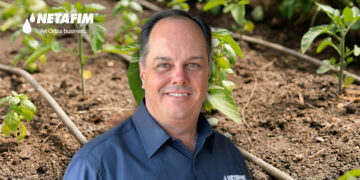As vineyards across the world face shifting weather patterns – including unpredictable rainfall and rising temperatures, as well as increasing consumer demands for sustainable production every step of the way – wine producers are being forced to adapt.
At Vinimark’s recent Masterclass on Organic and Biodynamic Wines, the company’s senior sustainability manager, Siglinda Lösch, unpacked what this means for South African wine brands.
“It’s about rethinking every aspect of how we grow, make and sell wine, from soil health to social responsibility. Climate change is here, and our future depends on how we respond to it,” Lösch said.
The climate crisis comes to the vineyard
Lösch said industries feel the effects of a changing climate as acutely as wine. Grapevines are deeply sensitive to temperature shifts, rainfall variability and soil health, and each region’s terroir depends on a delicate ecological balance.
For South African producers, recent years have brought everything from drought to unseasonal rains and rising input costs. “We’re seeing how climate instability translates into economic instability.
Related stories
- Tough quarter for SA wine industry as sales fall
- Wieta supports black wine producers’ path to equity and excellence
- Khula! and Kagiso Trust unite to get farmers funding ready
- Absa, Agda tackle fragmented funding for emerging farmers
“It affects harvest yields, grape quality, labour and even how wineries manage their water and energy use. Resilience comes from planning, not panic. Producers who build sustainable systems now (in their vineyards, operations, and communities) will be the ones best equipped to thrive in the decades ahead,” she said.
While organic and biodynamic practices remain important, Lösch emphasised that sustainability encompasses a much wider framework, one that includes environmental, social and economic dimensions.
“Organic certification is valuable, but it’s not the only measure of responsible production. True sustainability is about continuous improvement through, for example, finding smarter ways to use energy, manage waste, protect biodiversity and empower the people who make the wine,” she added.
Joining this list of innovators is Robertson Winery, which recently made history with the world’s first fully recyclable bag-in-box solution, developed and manufactured right here in South Africa.
📢 Stand Up, Be Seen, Be Counted
We want to provide you with the most valuable, relevant information possible. Please take a few minutes to complete this short, confidential survey about your farming practices and challenges. Your feedback helps us tailor our coverage to better support the future of agriculture across Mzansi.
Until now, only the cardboard exterior of this popular packaging format was recyclable, while the inner plastic liner posed challenges due to its composite materials. Robertson Winery’s new design changes that entirely: every component is now recyclable, meeting the highest international plastic recycling standards.
“These are powerful examples, but they also remind us that sustainability isn’t a checklist, it’s a mindset. It requires commitment at every level, from vineyard workers to brand managers to consumers,” Lösch said.
Collaboration and transparency drive change
Another key theme of the discussion was collaboration. No single producer can address the challenges of climate change alone. The industry’s success will depend on shared learning, open communication and mutual accountability.
“We need to talk about what’s working and what isn’t. That’s how the industry evolves. When one producer finds a better way to manage water or reduce emissions, that knowledge should benefit the whole ecosystem.’
Data and transparency, Lösch noted, are critical. Many wineries are now measuring their carbon footprints, auditing supply chains and setting measurable goals. “It’s not about perfection, it’s about progress,” she said.
READ NEXT: Civil groups slam govt for failed farmworker equity schemes
















